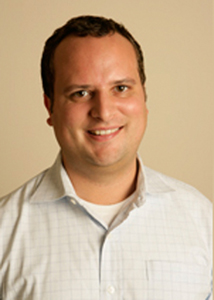
Joshua Belkind
Over 15 years after he worked as assistant international production coordinator at the Shoah Foundation, Joshua Belkind still regards the experience as one that influenced where he is today.
Belkind began interning as an assistant videographer at the Shoah Foundation when he was an undergraduate film major at the University of Southern California around 1995. Over the summer, he said, he recorded 10 interviews a week. He ended up doing over 100 interviews.
After he graduated in 1997, he joined the Shoah Foundation staff full-time, working his way up to assistant international production coordinator, in which he helped set up testimonies that were being taken around the world.
“My day would start somewhere in Eastern Europe and end in South America. It was great but it was pretty intense,” Belkind said.
As the Shoah Foundation drew closer to its goal of recording 50,000 testimonies, Belkind knew his time in production there was coming to an end. In 1998, he began working in Walt Disney Television’s legal department. He graduated from Southwestern Law School and is currently a director in the broadcast standards and practices group at ABC, Inc.
Belkind said the Shoah Foundation was one of the best internships USC film students could get. Instead of simply answering phones or being office assistants, Belkind and other interns were able to play an active role in recording and coordinating the testimonies. Belkind even got to help record a Schindler’s List promo with Steven Spielberg and Ben Kingsley.
In the international production office, Belkind said the staff “worked very hard on something we really felt passionate about.” It was their job to track down videographers and interviewers – some who didn’t speak English – to take testimonies of Holocaust survivors in remote areas where the Shoah Foundation had no regional offices. It was a challenging task. But he remembers a sign in the office that read, “If not now, when?”
Even as an undergrad, the work had a profound effect on him. Hearing Holocaust survivors talk about how important their education was to them inspired him to work harder in school and get better grades. Belkind said he went to law school in large part because working at the Shoah Foundation made him more focused on doing the right thing, even if it wasn’t easy, and increased his interest in “the structure of things, and why things are a certain way.”
He said that he couldn’t have predicted back then how far the Shoah Foundation would have come over the last 20 years, but he knew the testimonies he was helping to collect were in good hands and would have great value. Belkind said the experience of working with such a passionate group of people on a massive, global project still stands out in his mind today.
“It’s amazing how totally across the world we were, and trying to operate this thing to the magnitude that we were. I think it’s pretty unique for people to collaborate in such a way to do something like that globally,” Belkind said. “It was pretty special to be part of that.”